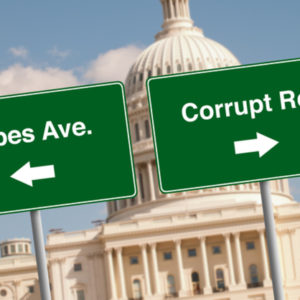On International Anti-Corruption Day, We Must Better Understand the Extent to Which Corruption Harms Individual Lives and Entire Communities
Last week, I attended the International Anti-Corruption Conference held in Panama City (an irony not lost on anyone). Riding the bus to the convention center, I spoke with an anti-corruption advocate from Guatemala. She was eager to hear about the impact of the U.S. election on our work and what it means for American engagement in multilateral discussions on transparency and anti-corruption initiatives.
We discussed the large and multiple conflicts between the incoming President’s public responsibilities and his private business interests. I mentioned a recent article about how a banking lobby already moved their events for the coming year to one of Trump’s Washington area hotels, presumably to curry favor. Another article detailed a leasing agreement between the federal government and Trump enterprises, effectively making the incoming President his own landlord. Not even in office, and the list of conflicts of interest and potential conflicts is long.
Her reaction: “Welcome to my world.”





